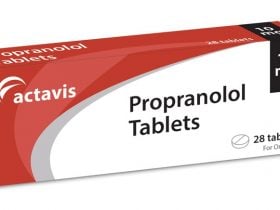What is atorvastatin?

Atorvastatin is a member of a family of drugs called HMG CoA reductase inhibitors, or “statins.” It is commonly combined with diet to reduce the levels of “bad” cholesterol (low-density lipoprotein, or LDL) in blood, reduce the levels of triglycerides (a form of fat), and increase the levels of “good” cholesterol (high-density lipoprotein or HDL) in the blood.
Atorvastatin is prescribed by healthcare providers to treat high cholesterol levels and heart attack, and reduce the risk of stroke, or other heart complications in people who have type 2 diabetes, coronary heart disease, and other risk factors. The drug can result in health complications if it is taken by pregnant or breastfeeding women or people who have liver disease. If you notice any health complications while using this drug, you should stop using it and report it to your healthcare provider immediately.
When certain medications are administered with Atorvastatin, it can result in severe drug interactions. It is important to tell your doctor about all the drugs you are taking before using atorvastatin.
In some cases, atorvastatin can lead to a condition that degrades the tissues in your skeletal muscle and causes renal failure. It would help to report to your doctor immediately if you start to experience tenderness, weakness, abnormal pain in the muscles, dark colored urine, unusual fatigue, and fever.
Stay away from meals that contain high levels of cholesterol or fat. Since Atorvastatin works with a diet plan, failure to follow the plan may impede the effectiveness of the drug. The drug forms part of a complete treatment plan that involves exercise, weight loss, and diet. To get the best out of the medication, you must follow your exercise routines, drugs, and diet effectively.
Do not use Atorvastatin if you are allergic to it, if you have liver disease, or if you are breastfeeding or pregnant. Due to its adverse effects on unborn babies and its tendency to cause birth defects, doctors advise pregnant women to stay away from the drug.
You can use birth control methods to prevent yourself from getting pregnant while using the drug. In breastfeeding women, the drug can move into breast milk and result in several health complications for your child.
According to experts, people who have ever had these conditions should report to their doctor before using the drug:
- Liver problems
- Muscle pain or weakness
- Kidney disease [1]
- Diabetes [2]
- Thyroid disorder [3]
Also, doctors advise people who drink more than two alcoholic beverages every day. Atorvastatin can lead to a condition that degrades tissues in skeletal muscle and causes kidney disorder. According to research, this condition is more common in older people and people who have severe hypothyroidism (inactive thyroid) or kidney disease. The drug is safe for adults and children who are younger than 10 years old.













